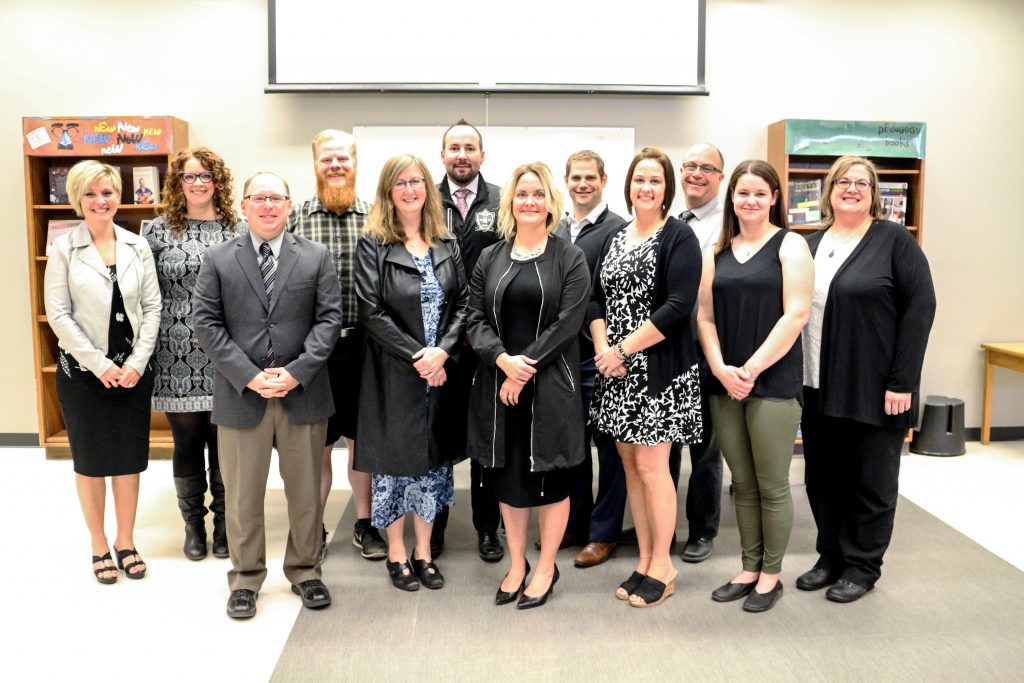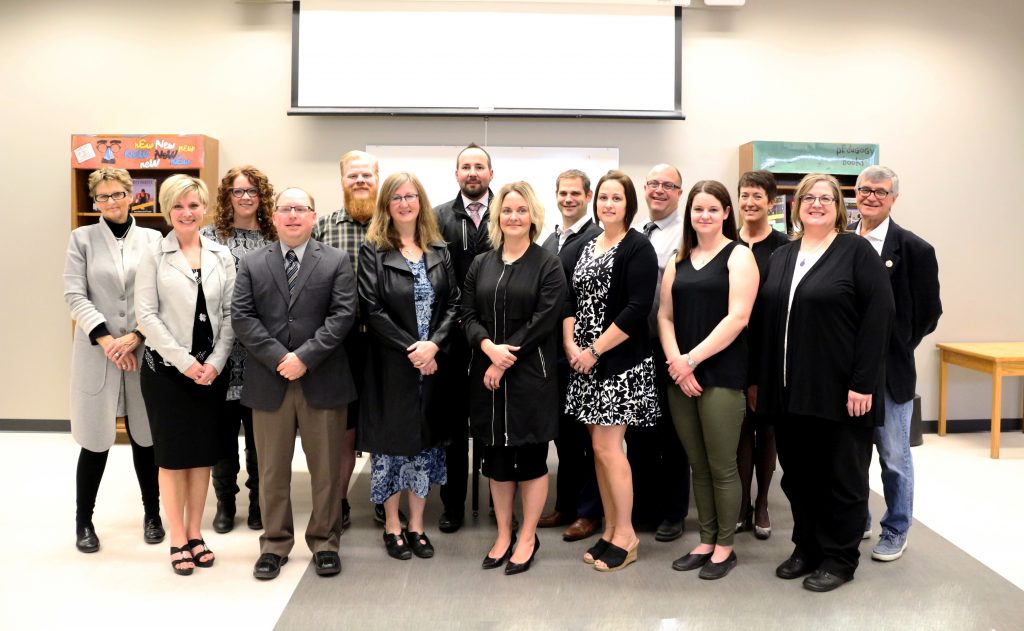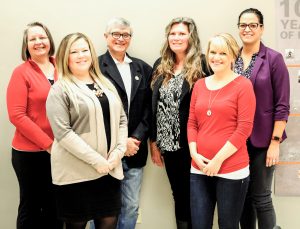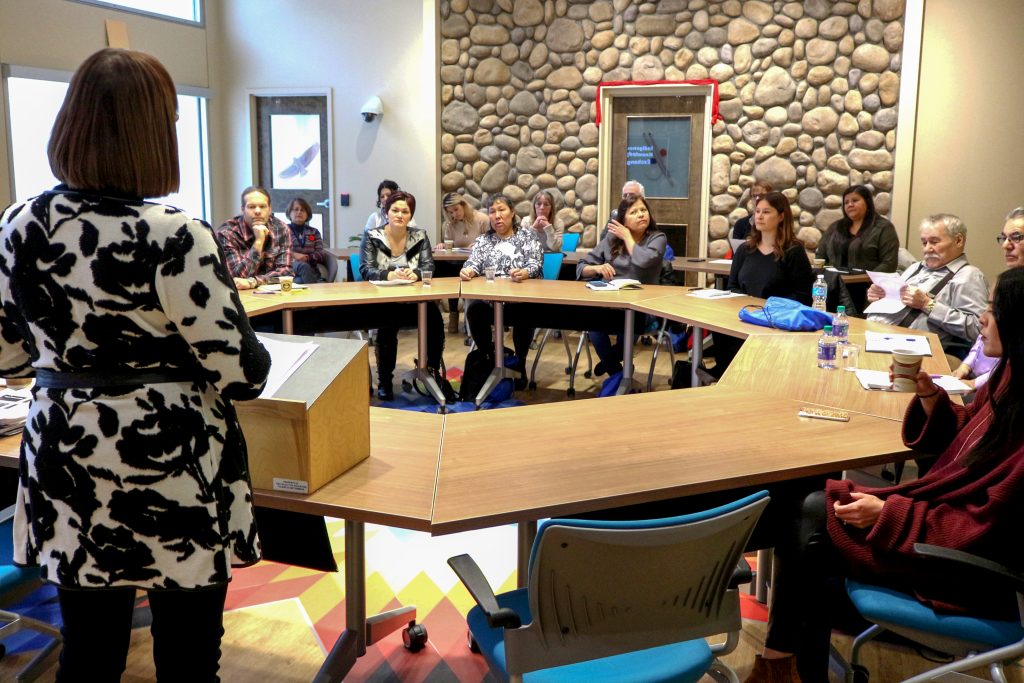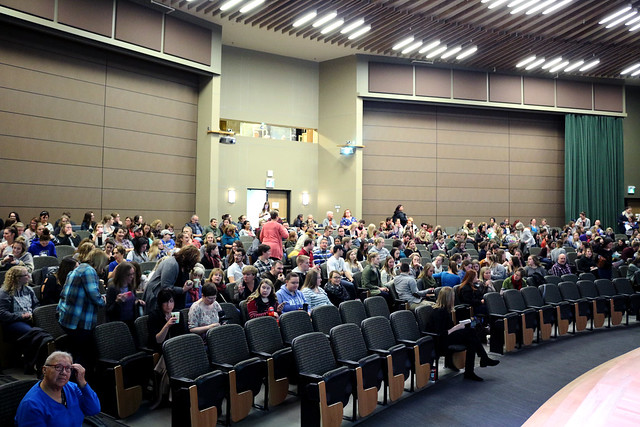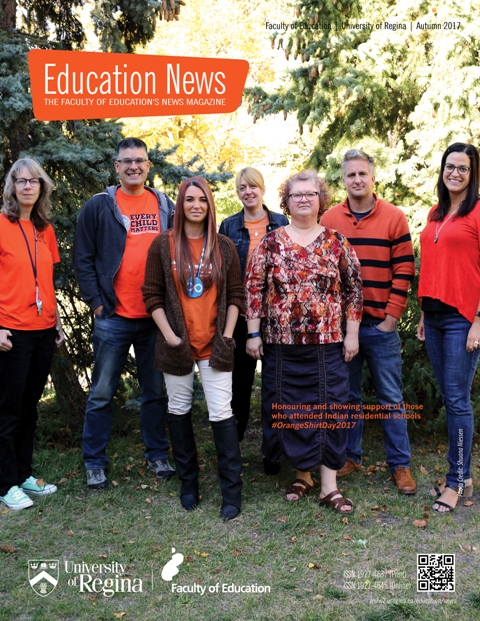
Author: Editor Ed News
A fresh take on teaching the teacher: U of R educator receives national honour
By Costa Maragos Posted: November 16, 2017 6:00 a.m.
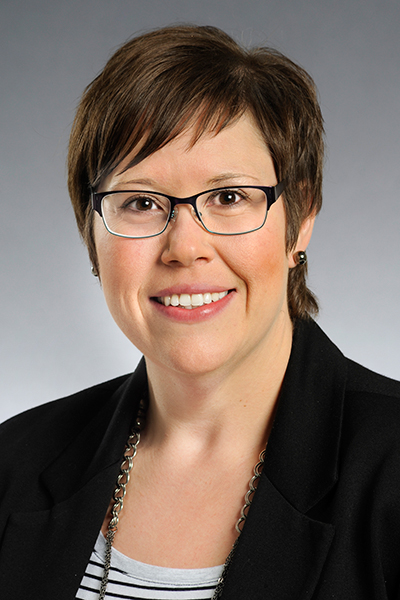
Dr. Pamela Osmond-Johnson is assistant professor of Education Administration.
Just back to classroom teaching having completed her Masters of Education at Memorial University, Pamela Osmond-Johnson was ecstatic when a former professor invited her to present one of her papers at a research conference. Her enthusiasm waned, however, when her request for a few days off from teaching in order to travel and attend the conference was denied by the local school board.
“A light bulb went on for me at that very moment: I had received a clear message that my involvement in education research was not perceived as an important part of my work as a teacher.”
That experience set Osmond-Johnson on a two-fold mission: to improve the quality of professional learning opportunities available to teachers and to promote an ‘activist teaching profession’ that sees teachers engage in collaborative learning, leadership, and decision-making processes in the classroom and beyond.
Dr. Pamela Osgood-Johnson is the co-author of Empowered Educators in Canada: How High-Performing Systems Shape Teaching Quality. Her collaboration on numerous high-profile research projects is getting noticed; Dr. Osmond Johnson (she received her PhD from the University of Toronto’s Ontario Institute for Studies in Education), was recently honoured by the EdCan Network with The Pat Clifford Award for Early Career Research in Education.
The prestigious award recognizes the work of emerging researchers – their research contributions, their promise, and their commitment to breaking new ground or revisiting commonly held assumptions in education policy, practice or theory in Canada.
The EdCan Network, an independent national organization with more than 75,000 members, gives a voice to educators working in Canada’s K-12 education.
In announcing the award, the Selection Committee stated that it “was impressed with the relevancy and originality” of Osmond-Johnson’s work.
“Dr. Osmond-Johnson maintains teacher professionalism as a central tenet of student success, and her research revealing the gaps that exist in access to high-quality professional learning underpins a significant avenue for improving quality of teaching and learning,” says Dr. Michele Jacobsen, Professor and Associate Dean at the University of Calgary’s Werklund School of Education, and Chair of the Pat Clifford Award Selection Committee.
“I am hopeful that this award will bring attention to the importance of teacher-led professional learning in Saskatchewan and across the country, reminding those in decision-making positions that teacher learning is a key component in school and student success,” says Osmond-Johnson, Assistant Professor of Education Administration at the U of R.
Dr. Osmond-Johnson’s work to date includes co-author credit for Empowered Educators in Canada, a bestseller in education administration textbooks on Amazon.ca.
She is the co-investigator of The State of Professional Learning in Canada project that involves a research team studying professional development across Canada.
In Saskatchewan, Osmond-Johnson is leading a research project that’s exploring the facilitator community, an initiative where classroom teachers develop professional development for their fellow educators.
Internationally, Dr. Osmond-Johnson has contributed to a comparative study of teacher Professional Development policies and practices in Canada, Finland, China, Singapore, and Australia.
Joining the Faculty of Education at the U of R in 2015, Osmond-Johnson advocates for a shift away from the traditional ‘sit and get’ approach.
“As a university professor, I work heavily with my students – both at the undergraduate and graduate levels – to model what is sometimes called a ‘professional learning community’ or a ‘community of practice,’” she says. “At the undergraduate level, I try to emphasize the importance of teacher as learner. I tell my teacher candidates, ‘If you think that you don’t need to learn something new every single day for the rest of your career, then you’re in the wrong career.’”
Osmond-Johnson’s groundbreaking research and refreshing approach have the potential to redefine the teaching profession.
Teacher Education Programs gather for Indigenous Knowledge Exchange
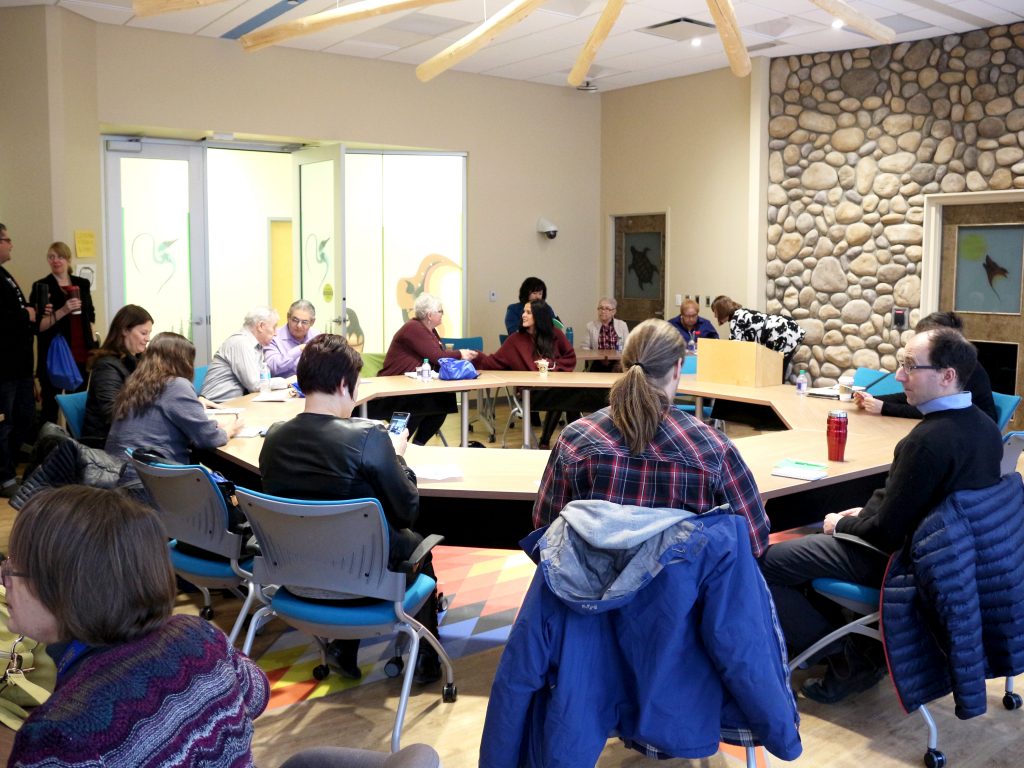
On November 8 and 9, 2017, Teacher Education Programs’ faculty, directors, and program heads (SUNTEP, ITEP, NTEP, and YNTEP) gathered together for an Indigenous Knowledge Exchange. This was the first time the TEPs came together since 2008, when several TEPs gathered to discuss Indigenous ways of knowing.
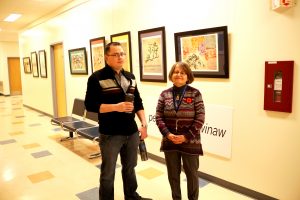
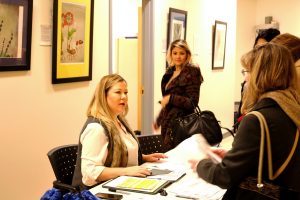
Hosted by the University of Regina, Faculty of Education, the Indigenous Knowledge Exchange gathering “provided an opportunity for participants to advance and strengthen relationships between one another, engage in transformative Indigenous education, and collaborate and plan for the future,” says SUNTEP Regina coordinator, Janice R. Thompson. Thompson was involved in the organization and planning along with Associate Dean, Dr. Val Mulholland, Associate Dean’s Assistant, Wanneta Martin, and Acting Dean of Education, Dr. Andrea Sterzuk, along with others who assisted with this event.
The day was hosted by Janice R. Thompson and began with opening prayers by SUNTEP Regina’s, Irma Klyne and opening remarks by Acting Dean, Dr. Andrea Sterzuk. Chairman of the GDI Board of Governors, Dr. Earl Cook, brought opening greetings on behalf of Gabriel Dumont Institute. Dr. Sherry Farrell-Racette, professor in the Department of Visual Arts, MAP, brought a keynote.
Over the course of two days, the group explored themes that emerged such as “similarities and differences between the TEP programs and establishing a safe space for us to examine our work,” says Thompson. Scheduled theme discussions included TEP’s philosophy and TRC Calls to Action, Indigenous pedagogy and research (land-based pedagogy), language development and preservation, and successes and challenges.
Thompson says, “This invaluable two-day experience continued to demonstrate our commitment to Indigenous teacher training in the academy, and we are humbled by this. We look forward to gathering in the near future, and not another ten year wait!”
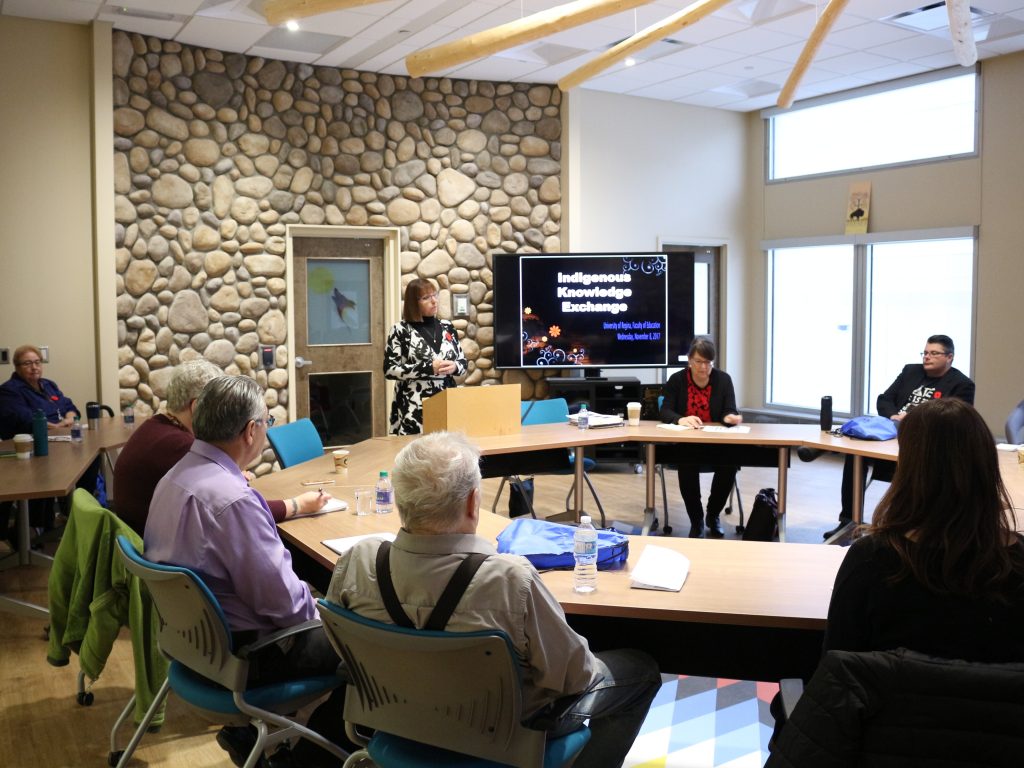
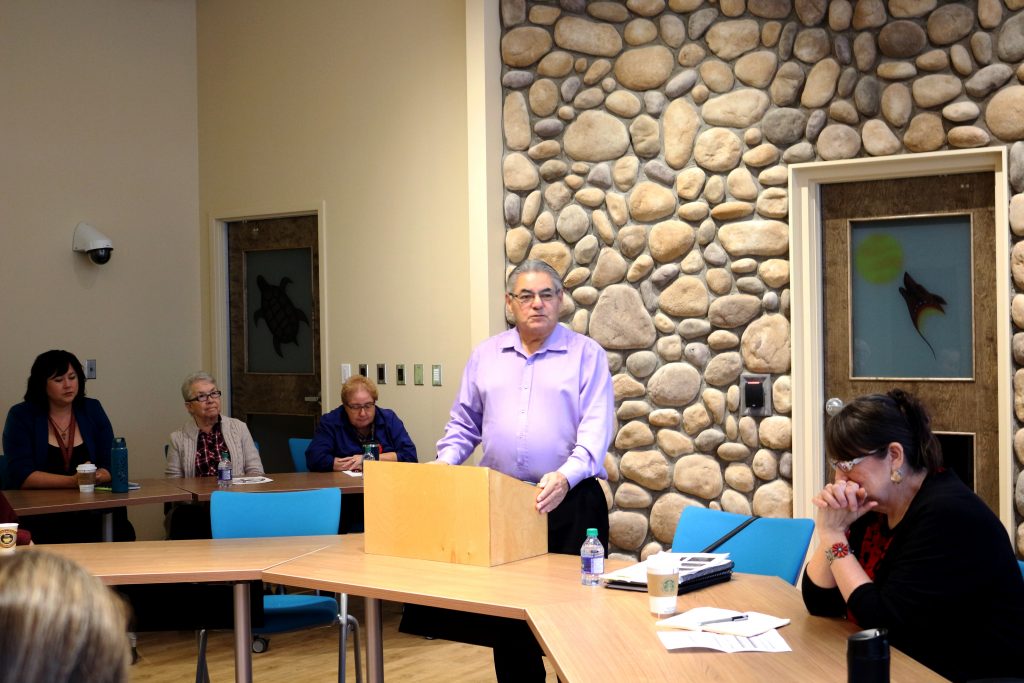
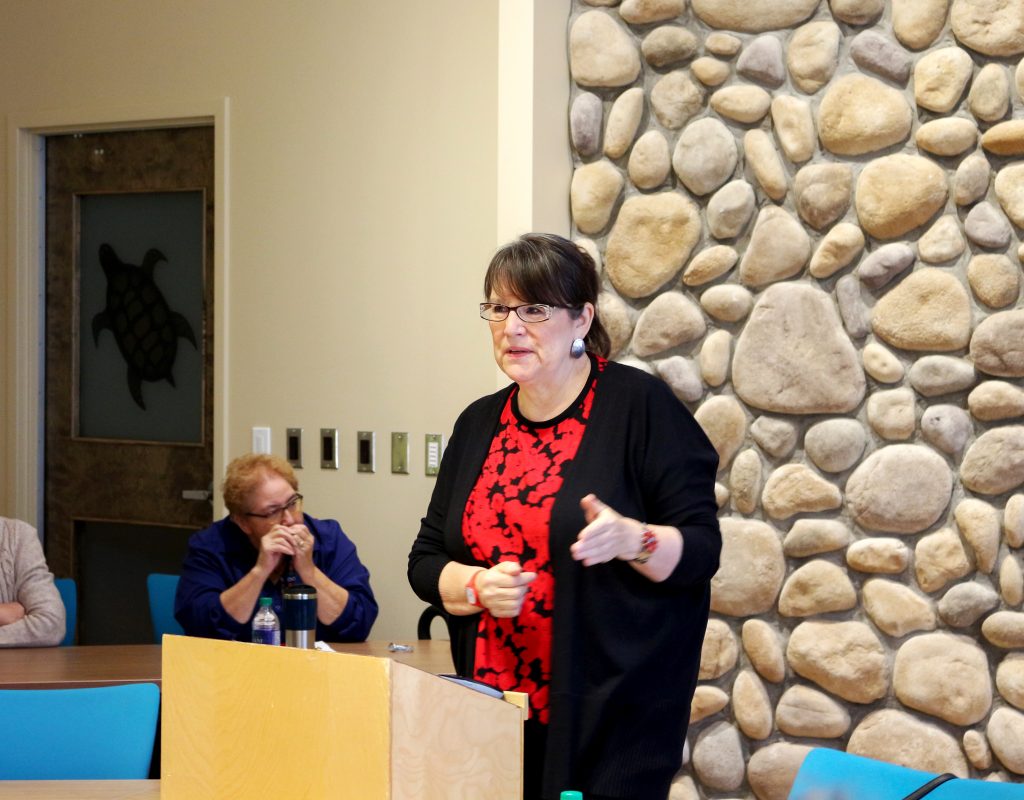
Photo credits: Shuana Niessen
Bac alumni recipients of the Governor General’s History Award for Excellence in Teaching
*Naomi Fortier-Fréçon et Leia Laing
Lauréates du Prix d’histoire du Gouverneur général pour l’excellence en enseignement 2017
_________________________________________
Naomi Fortier-Fréçon and Leia Laing
Recipients of the 2017 Governor General’s History Award for Excellence in Teaching
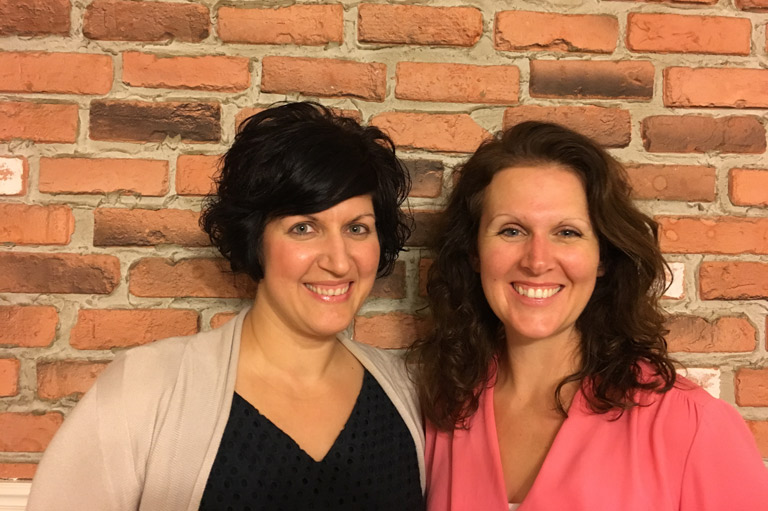
Projet multi-écoles, Regina (Saskatchewan)
Le Treaty4Project a principalement pour but d’aider les élèves à comprendre les liens qui relient leur génération au Traité 4 en Saskatchewan, aujourd’hui et dans les années à venir. Grâce à la participation d’aînés, d’artistes autochtones, de professeurs d’université, d’activistes et d’étudiants en éducation, le projet donne aux élèves l’occasion d’échanger avec des membres de la communauté et d’acquérir les connaissances fondamentales dont ils ont besoin pour s’attaquer à des dossiers très complexes. Le projet a été mis sur pied en 2015 avec le soutien du Saskatchewan Arts Board et comporte maintenant deux composantes. La première est une conférence pour les élèves du secondaire à l’Université des Premières Nations du Canada où l’on propose aux participants des ateliers, des discussions de groupe et des réflexions sur l’histoire du traité et l’éducation. En 2016 s’est ajoutée une nouvelle composante faisant appel aux élèves du niveau élémentaire; ces derniers ont alors collaboré avec un artiste local à un projet visant à explorer le concept de réconciliation. Mme Fortier-Fréçon et Mme Laing sont des enseignantes d’histoire du Canada enthousiastes et dévouées et le Treaty4Project est un bon exemple de la façon dont les enseignants peuvent intégrer des gestes de réconciliation concrets dans leur salle de classe.
Multi-school project, Regina (Saskatchewan)
The principal aim of the Treaty4Project is for students to understand their generation’s relationship with Treaty 4 in Saskatchewan, both today and in the future. Through the participation of elders, Indigenous artists, university professors, activists, and education students, the project provides students with a chance to engage with community members and gain the fundamental knowledge they need to tackle very complex issues. The project was first implemented in 2015 with the support of the Saskatchewan Arts Board and now has two main components. The first is a youth conference for high school students at the First Nations University of Canada, which features workshops, group discussions, and reflections on treaty history and education. As a new component in 2016, elementary students collaborate with a local artist on a project that explores the concept of reconciliation. Ms. Fortier-Fréçon and Ms. Laing are enthusiastic and dedicated to teaching Canadian history and the Treaty4Project serves as an example of how educators can incorporate meaningful acts of reconciliation in their classroom.
Naomi Fortier-Fréçon is a graduate of the Bac program and currently a PhD candidate in the Faculty of Education (Supervisor: Fadila Boutouchent). Leia Laing is a graduate of the Bac program. Both are French immersion teachers at Campbell Collegiate in Regina, Saskatchewan.
Naomi and Leia will be presented with the Governor General’s History Award at Rideau Hall in Ottawa, ON, on November 22, 2017.
*About Treaty4Project https://treaty4thenextgeneration.blogspot.ca/
Student gatherings
Wednesday, November 8 was a busy night for the Faculty of Education. Education Students’ Society organized a Bowling night for students, faculty, and staff. The event was well attended and pizza well enjoyed. Graduate students held a potluck and students attended from as far away as Nunavut (NTEP)! TEP (Teacher Education Program) graduate students were here for a TEP Indigenous Knowledge Exchange.
 To view the photo album, place cursor over the photo and click on arrow.
To view the photo album, place cursor over the photo and click on arrow.
2017 Pat Clifford Award Winner
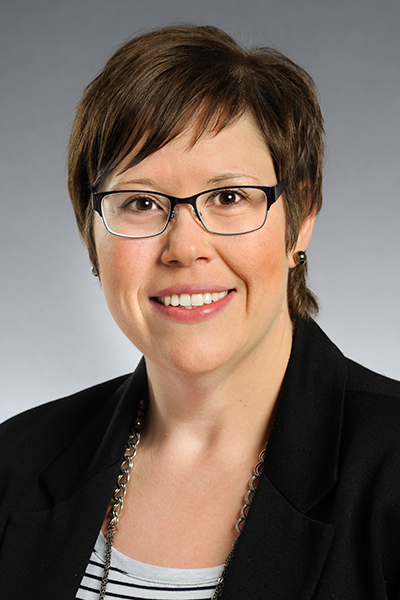
2017 Pat Clifford Award Winner
“Dr. Pamela Osmond-Johnson’s research is redefining the role of teachers as innovation leaders.”
“Dr. Osmond-Johnson’s research reveals the benefits of teachers assuming leadership roles in designing their own PD and influencing school improvement, and it has the potential to redefine the teaching profession while heightening the quality of instructional practices and learning.”
TORONTO – November 9, 2017 – The EdCan Network is pleased to honour Dr. Pamela Osmond-Johnson – Assistant Professor of Educational Administration at the University of Regina – as the recipient of the 2017 Pat Clifford Award for Early Career Research in Education. This prestigious award recognizes her extensive research around teacher professional development (PD) across Canada, which has the potential to reform policies in support of equitable, job-embedded and teacher-driven professional learning.
During Dr. Osmond-Johnson’s 10 years of teaching in Newfoundland and Labrador, it became apparent the limited time, resources, and support that teachers were granted to guide their own professional learning based on their unique classroom needs. This experience fueled her motivation to elevate teacher voice within school systems. Dr. Osmond-Johnson has since collaborated on numerous high-profile research projects and hopes to eventually establish a national platform that will provide key data on teacher professional learning opportunities across the country.
As co-investigator of “The State of Professional Learning in Canada,” Dr. Osmond-Johnson is working with a team of researchers to study teacher PD across Canada. The group has undertaken case studies in British Columbia, Ontario, and Alberta and explores teachers’ experiences and level of autonomy in directing their own learning. The study further highlights the significant role that teachers’ unions can play in providing high-quality PD – indeed a tool for school improvement – which challenges the body of research that characterizes these unions as barriers to educational change. She is also spearheading a research project in Saskatchewan that explores the Facilitator Community, an initiative where classroom teachers develop and deliver PD for their fellow educators. Internationally, Dr. Osmond-Johnson has contributed to a comparative study of teacher PD policies and practices in Canada, Finland, China, Singapore and Australia.
“Teachers learn best when they collaborate with their peers,” explains Dr. Osmond-Johnson. “To do this, teachers need professional learning integrated into their daily classroom practice where they self-assess their practice to improve their own teaching and learning. This is especially true for teachers living in remote locations and who are in short-term contracts, as well as early career and francophone teachers, who are less likely to have these opportunities.”
The Pat Clifford Award Selection Committee was impressed with the relevancy and originality of Dr. Osmond-Johnson’s work, including her determined efforts to scale her research to a pan-Canadian and international level.
“Dr. Osmond-Johnson maintains teacher professionalism as a central tenet of student success, and her research revealing the gaps that exist in access to high-quality professional learning underpins a significant avenue for improving quality of teaching and learning,” says Dr. Michele Jacobsen, Professor and Associate Dean at the University of Calgary’s Werklund School of Education, and Chair of the Pat Clifford Award Selection Committee.
*To access a Q&A article with Dr. Osmond-Johnson, and for a bibliography of her work, please visit:* https://www.edcan.ca/cliffordaward
*For More Information About Dr. Pamela Osmond-Johnson’s Research*
Dr. Osmond-Johnson is co-author of Empowered Educators in Canada which debuted as #1 ‘Hot New Release’ and #1 Best Seller in educational administration textbooks on Amazon.ca
To access additional *The State of* *Professional Learning in Canada *research publications, please visit: https://www.learningforward.or g/publications/canada-study
*About the Pat Clifford Award*
The Pat Clifford Award recognizes the work of emerging researchers – their research contributions, their promise, and their commitment to breaking new ground or revisiting commonly held assumptions in education policy, practice or theory in Canada.
*About Pat Clifford*
Pat Clifford was one of the co-founders of *The Galileo Educational Network* https://www.galileo.org/, which is based in Calgary, Alberta. Pat had an extensive teaching background from primary through graduate level, and was the recipient of numerous awards for both research and teaching practice. Pat passed away in August of 2008 but she left a gift to us in her teaching, scholarly writing, poetry and stories. As a teacher, Pat was steadfast in her belief that each child had the right to succeed brilliantly, and brought to them her own love of literature, writing and history. This award is dedicated to her memory.
*About the EdCan Network*
The EdCan Network is the independent national organization with over 75,000 members working tirelessly to ensure that *all *students discover their place, purpose and path.
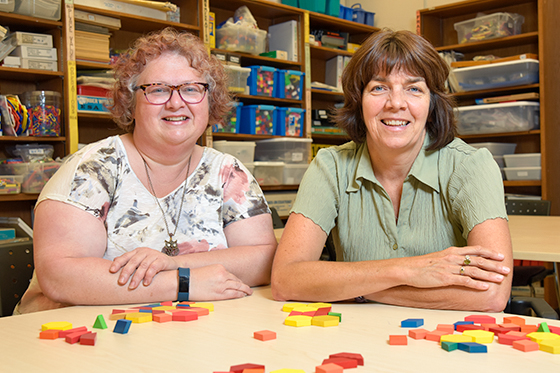
New Teaching Elementary School Mathematics Certificate Info night
With the Faculty of Education’s recent introduction of a new Teaching Elementary School Mathematics (TESM) certificate program, a general information event for teachers and administrators who want to learn more will be held:
TESM Certificate Information Evening
Monday, November 20, 2017
6:30 – 7:30 pm
ED 341, Faculty of Education, University of Regina
For more information, please contact Dr. Kathy Nolan at Kathy.Nolan@uregina.ca
The TESM Certificate Information Evening opens with a brief presentation to address key questions about the TESM certificate: *WHO is it for? *HOW many courses in the program? *WHAT are those courses? *WHY would I take this certificate program? The presentation is followed by time to ask questions, mingle, and enjoy a few snacks.
This event is hosted by the Mathematics Education subject area and the Faculty of Education Undergraduate Program Office. Course instructors, current students in the program, and student advisors will be on hand to respond to your questions.
No RSVP required. We hope to see you there!
Not able to join us Face-to-Face? Join by video conference: https://zoom.us/j/115716942
Certificate in Teaching Elementary School Mathematics
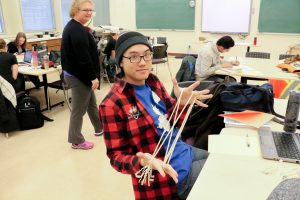 Designed for those involved in the mathematics education of K-8 students, this program provides experiences to deepen one’s understanding of mathematics concepts, with courses in number sense, spatial reasoning, and modeling and representation, as well as courses in culturally responsive pedagogy, inclusive education, and research in the field of mathematics education.
Designed for those involved in the mathematics education of K-8 students, this program provides experiences to deepen one’s understanding of mathematics concepts, with courses in number sense, spatial reasoning, and modeling and representation, as well as courses in culturally responsive pedagogy, inclusive education, and research in the field of mathematics education.
| Certificate in Teaching Elementary School Mathematics (TESM) (30 credit hours) |
| EMTH 200: Implementation and Assessment of Problem Solving in Mathematics |
| EMTH 325: Number Sense for the Elementary School Mathematics Teacher |
| EMTH 335: Mathematics in the Inclusive Classroom: Assessment and Intervention |
| EMTH 326: Spatial Reasoning for the Elementary School Mathematics Teacher |
| EMTH 327: Modeling & Representation for the Elementary School Mathematics Teacher |
| EMTH 425: Culturally Responsive Pedagogy in the Mathematics Classroom |
| EMTH 426: Research in Mathematics Curriculum, Instruction and Assessment |
| Elective 1 [select one from: MATH 102; STAT 100 OR STAT 160; MATH 108; MATH 103 OR MATH 110; MATH 127; MATH 231; MATH 200-400 level] |
| Elective 2 [select one from: EMTH 217; EMTH 300; EDTC 300/ECMP 355 ((or EDTC 400/ECMP 4551); ECE 425; ECS 410; EPSY 300-400 level] |
| Elective 3 [select one from any course listed under elective 1 or elective 2] |
Note: If a student already has credit for EDTC 300/ECMP 355, then EDTC 400/ECMP 455 may be taken. Taking both EDTC 300/ECMP 355 and EDTC 400/ECMP 455 as electives in this certificate program is not permitted[1]
HOPE student association raises money for phys ed gear
Each year, HOPE student association “peddles for change” to raise money for phys ed gear for school children. This year, the dollars raised will go to St. Michael’s Community School to help buy runners.

Head to the glass hallway between Riddell and the Ed Building to donate and help @UofRHope buy shoes for St. Michael’s School #yqr #give pic.twitter.com/kRe9yXTz5l
— UofR Students’ Union (@urstudentsunion) October 31, 2017
@UofRHope raised $ for our school to buy shoes by riding stationary bikes. @StMichaelRegina ss went to @UofRegina to help out pic.twitter.com/0MaEWtEl8y
— Ryan Gallagher (@MrRGallagher) October 31, 2017
HOPE students’ association raising money for St Michael’s Community School phys ed program. Stop by to cycle and donate. @UofRHope #uredu pic.twitter.com/kcSwZVIKat
— URFacultyofEducation (@URFacofEd) October 31, 2017
Over 400 attend #TreatyEdCamp 3.0
Community-based master’s in educational administration program graduates
The Community-Based Master of Education Program in Educational Administration for Southeast Cornerstone SD #209 and Holy Family RCSSD #140 was designed to provide a unique cohort model of graduate education to educators in off-campus locations in order to more effectively link theory to local educational issues and practice.
Students in this cohort began their program in the summer of 2015. They finished in the summer of 2017.
Congratulations on your graduation!
